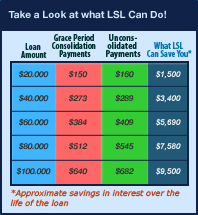 |
From December 12th through 14th, discussing issues related to and determining regulations for student financial aid will be priorities at the negotiated rulemaking meetings to be held at the Marriott Crystal Gateway hotel in Arlington, VA. Negotiated rulemaking is a process that allows representatives from different groups to meet with a federal agency to discuss the texts of proposed rules. The objective of such gatherings is to reach agreements on regulations by consensus, rather than majority vote. If a consensus is achieved, the group's decision is used to establish a rule. If it is not achieved, the federal agency's normal rulemaking activities continue.
According to its website, prior to scheduling this event, the Department of Education's Office of Postsecondary Education announced and held a series of four regional hearings to solicit issues to be considered for action by the negotiating committees. Information about these hearings was published in the Federal Register on August 18, 2006. Hearings are open to observation by the public, but typically only committee members speak during proceedings.
Issues selected for the agenda must meet four major criteria. First, each issue must be able to be addressed through regulations. Secondly, solutions need to be identifiable. Thirdly, there must be a sensible belief that the committee can reach a consensus about each issue. And, lastly, terms proposed are expected to be cost-effective.
Based on the aforementioned criteria, the current tentative agenda for the upcoming conference includes several matters pertaining to Title IV loan issues: economic hardships, the ICR formula and family size, and actions appropriate under the HEA. The committee will also discuss retention of disbursement records supporting MPNs, certification of e-signatures on MPNs assigned to ED, and the use of true and exact copies of death certificates for death discharges. Discussion of retroactive discharges for permanently and totally disabled borrowers, as well as lender NSLDS reporting timeframes, is on the table, too.
Additional federal loan topics have been slated to be addressed. One topic of interest is entrance counseling for Grad/Prof Plus loan borrowers. Concerns about the Perkins loan, such as assignment of defaulted loans, eligibility requirements for child and family service cancellation, and the definition of "reasonable and affordable" collection costs will need to be resolved, as well.
Lender and GA subjects include identify theft, prohibited inducements, and the hot-button use of preferred lenders. Again, this outline is not official, but as soon as it is solidified, the complete agenda will be published on a soon-to-be launched negotiated rulemaking website.
Negotiated rulemaking is considered advantageous for several reasons. The process allows affected parties to voice input directly, while rules are still being drafted. Ideally, if all those involved in the negotiation of a rule are satisfied, the rule will go into effect quickly.
|
|
 |














 Law School Loans' borrower benefits program enables you to reduce your interest rate by an additional 0.25% for using our automatic debit program.
Law School Loans' borrower benefits program enables you to reduce your interest rate by an additional 0.25% for using our automatic debit program.
